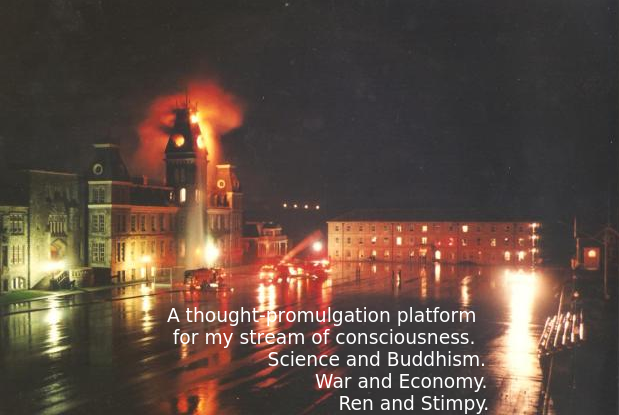mathjax
Tuesday, February 18, 2014
Better management does not equal more managers
It's one thing to propose to improve management, but how that is achieved can be open to debate. Of little doubt is the utility of more managers. Increasing the chain of managers, interlocking responsibilities of area managers (HR manager, IT manager, regional manager), and distribution of responsibility only leads to misuse and abuse. After all, why take responsibility if you can aim the blame in one direction? Or several?
Managers today are expensive, entitled, and mainly focus on issues of blame and credit as opposed to leading change, setting company standards, and being responsible for goals, people, and assets. Companies' incentives are set up so managers are more interested in protecting their turf because the incentives are gamed that way. It's hard to expect managers to side with shareholders over their personal interests when the two reward systems are at odds.
Workers of today are not the uneducated, uninspired, untrained farm hands of the 1920's. Successful lateral organizations demonstrate a collective structure and collaboration can replace a manager with better effect. Some fields, like for example scientists at a university, work best without an administrative manager overseeing work. Professors are free to set up labs, hire staff, and lead the work and write research proposals. Business managers would not have enough education to understand the work in general and so this field demonstrates whole cultures that can work without managing. Doctors hire office administrators. Lawyers as well, neither need a business manager.
If anyone claims more managers are required then consider the ulterior motives that would justify that claim.
Friday, February 14, 2014
The Internet: A Gift from God?
I like the new Pope, Pope Francis, because I think he is a really compassionate - if misguided - human being that is practicing what Jesus (allegedly) taught.
But from what he says from time to time I question whether or not he understands the dogma he believes that the Church has indoctrinated him with. How can you truly affect the human condition if you can't see through your own misperceptions?
In January of this year, he called the internet: he said Francis said: '[The internet] is something truly good, a gift from God.'
Read more: The Daily Mail.
He got the first part right. The internet is a wonder of invention. But the odious and wrong part of this statement is claiming it was the product of otherworldly creation. Question, if God thought the internet was such a good idea, then why did he wait until man was in the second millenia to give it to us?
No, the Pope has committed a blunder and an act of piracy at the same time. To claim that the effort of discovering, making, and producing the internet was a godlike act lies to humanity and ignores the real human suffering that went along with that creation. Scientists and engineers worked very hard, worked through disputes and technical challenges, missed their families and vacations, debugged nagging problems and lived a life devoted to achievement. It steals a great achievement of man and gives it to a non entity. It is unfair and unjust and takes away from real people's dignity. This is what the Church does - it steals the real achievements of men and deceives believers to give more credit where no credit is due.
So while you may admire the Pope, beware of his dogma it hasn't changed.
Wednesday, February 12, 2014
Global warming or God: which is the Greatest Fraud?
What is greater fraud? The proposition that the world is warming in a human-driven way and could lead to risk and loss or the proposition that a great omniscient omnipotent omnipresent being created the universe and cares what you do while you live? What are the costs to society of each?
Tomorrow's advances lie in yesterday's assumptions
From the many great works of man, human ability and effort can encompass only subsets of the true problem. We can only do and make so much individually. From where an inventor stops others will follow. Tomorrow's achievements are in the axioms, assumptions, or common knowledge of today.
Subscribe to:
Posts (Atom)
